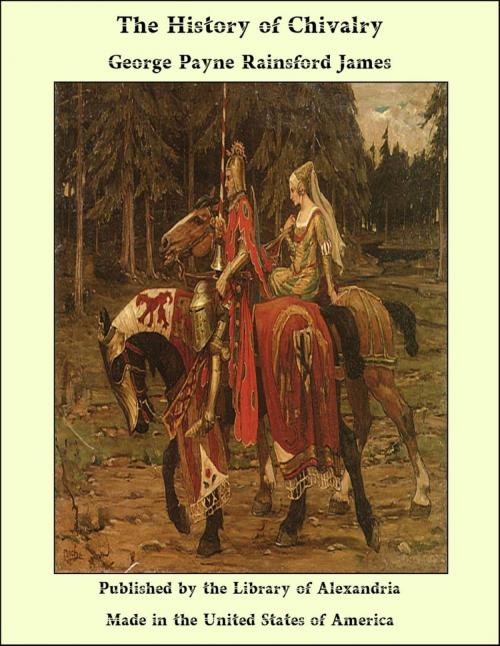| Author: | George Payne Rainsford James | ISBN: | 9781465597571 |
| Publisher: | Library of Alexandria | Publication: | March 8, 2015 |
| Imprint: | Language: | English |
| Author: | George Payne Rainsford James |
| ISBN: | 9781465597571 |
| Publisher: | Library of Alexandria |
| Publication: | March 8, 2015 |
| Imprint: | |
| Language: | English |
In writing the pages which follow this Preface, I have had to encounter the difficulty of compressing very extensive matter into an extremely limited space. As the subject was, in my eyes, a very interesting one, and every particular connected with it had often been food for thought and object of entertainment to myself, the task of curtailing was the more ungrateful: nor should I have undertaken it, had I not been convinced by my publisher that one volume would be as much as the public in general would be inclined to read. I wished to write upon Chivalry and the Crusades, because I fancied that in the hypotheses of many other authors I had discovered various errors and misstatements, which gave a false impression of both the institution and the enterprise; and I have endeavoured, in putting forth my own view of the subject, to advance no one point, however minute, which cannot be justified by indisputable authority. A favourite theory is too often, in historical writing like the bed of the ancient Greek; and facts are either stretched or lopped away to agree with it: but to ensure as much accuracy as possible, I have taken pains to mark in the margin of the pages the different writers on whose assertions my own statements are founded, with a corresponding figure, by which each particular may be referred to its authority. In regard to these authors themselves, it seems necessary here to give some information, that those persons who are inclined to inquire beyond the mere surface may know what credit is to be attached to each. On the first crusade we have a whole host of contemporary writers, many of whom were present at the events they describe. Besides these are several others, who, though they wrote at an after-period, took infinite pains to render their account as correct as possible. The authors I have principally cited for all the earlier facts of the Holy War are, William of Tyre, Albert of Aix, Fulcher of Chartres, Raimond of Agiles, Guibert of Nogent, Radulph of Caën, and Robert, surnamed the Monk.
In writing the pages which follow this Preface, I have had to encounter the difficulty of compressing very extensive matter into an extremely limited space. As the subject was, in my eyes, a very interesting one, and every particular connected with it had often been food for thought and object of entertainment to myself, the task of curtailing was the more ungrateful: nor should I have undertaken it, had I not been convinced by my publisher that one volume would be as much as the public in general would be inclined to read. I wished to write upon Chivalry and the Crusades, because I fancied that in the hypotheses of many other authors I had discovered various errors and misstatements, which gave a false impression of both the institution and the enterprise; and I have endeavoured, in putting forth my own view of the subject, to advance no one point, however minute, which cannot be justified by indisputable authority. A favourite theory is too often, in historical writing like the bed of the ancient Greek; and facts are either stretched or lopped away to agree with it: but to ensure as much accuracy as possible, I have taken pains to mark in the margin of the pages the different writers on whose assertions my own statements are founded, with a corresponding figure, by which each particular may be referred to its authority. In regard to these authors themselves, it seems necessary here to give some information, that those persons who are inclined to inquire beyond the mere surface may know what credit is to be attached to each. On the first crusade we have a whole host of contemporary writers, many of whom were present at the events they describe. Besides these are several others, who, though they wrote at an after-period, took infinite pains to render their account as correct as possible. The authors I have principally cited for all the earlier facts of the Holy War are, William of Tyre, Albert of Aix, Fulcher of Chartres, Raimond of Agiles, Guibert of Nogent, Radulph of Caën, and Robert, surnamed the Monk.















